Sousse massacre: why Tunisians don't believe their own media
Tunisians are increasingly turning to foreign media to find out what their newspapers aren't telling them
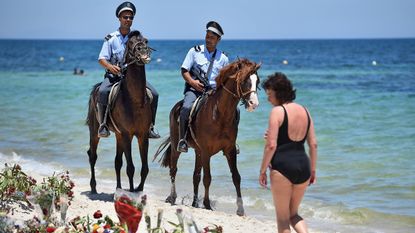
by Mourad Teyeb
Since last Friday's massacre of foreign tourists at a beach hotel in Sousse, Tunisian media outlets has been awash with reports on the attack and its aftermath, but most are being ignored by a Tunisian public mistrustful of official news reports.
After an initial period of confusion in the attack's immediate aftermath, the country's media focused primarily on the identification of the victims' bodies and their return to their respective home countries.
Subscribe to The Week
Escape your echo chamber. Get the facts behind the news, plus analysis from multiple perspectives.

Sign up for The Week's Free Newsletters
From our morning news briefing to a weekly Good News Newsletter, get the best of The Week delivered directly to your inbox.
From our morning news briefing to a weekly Good News Newsletter, get the best of The Week delivered directly to your inbox.
The arrests that followed also received media attention, as did the theories about which terror networks may have supported the attack and whether any further attacks can be expected.
But the widespread outcry over how Tunisian authorities failed to stop two bloody attacks in such quick succession was almost entirely ignored by media outlets known to be acquiescent to the political establishment. Most media companies in Tunisia are either owned by businesses directly linked to the country's former autocratic regime, or supported and financed by them.
One of the few serious reports on Tunisian media carried out by the Carnegie Endowment in 2012 found that "the Tunisian media is still a venue for manipulation, intimidation and bias".
A recent report (in Arabic) by Haica, Tunisia's media regulation body, found ethical and professional violations throughout the media's coverage of the Sousse attack. Haica mentioned "immoderate" and "irrational" treatment of information as well as "hate speech" by journalists. The regulator called on broadcasters to adopt a more professional approach to their coverage of terrorist attacks.
Instead of analysing the shortcomings of the security provisions in tourism resorts away from the country's capital, the media has instead focused its attention on difficult-to-prove links between the suspected gunman Seifeddine Rezgui and hard-line Islamist groups.
Questions remain over how the suspected gunman was able to spend 35 minutes on a shooting rampage without police intervention of any kind when the Hammam-Sousse police station is just ten minutes away from the crime scene.
As in the days of former ruler Zine El Abidine Ben Ali, who was ousted during the Arab Spring in 2011, Tunisians are once again turning to foreign press and social media to find out what their own newspapers, radio and TV networks are not telling them.
Create an account with the same email registered to your subscription to unlock access.
Sign up for Today's Best Articles in your inbox
A free daily email with the biggest news stories of the day – and the best features from TheWeek.com
-
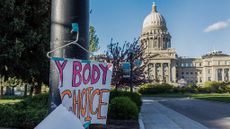 'Horror stories of women having to carry nonviable fetuses'
'Horror stories of women having to carry nonviable fetuses'Instant Opinion Opinion, comment and editorials of the day
By Harold Maass, The Week US Published
-
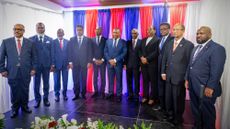 Haiti interim council, prime minister sworn in
Haiti interim council, prime minister sworn inSpeed Read Prime Minister Ariel Henry resigns amid surging gang violence
By Peter Weber, The Week US Published
-
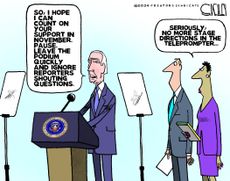 Today's political cartoons - April 26, 2024
Today's political cartoons - April 26, 2024Cartoons Friday's cartoons - teleprompter troubles, presidential immunity, and more
By The Week US Published
-
 Do youth curfews work?
Do youth curfews work?Today's big question Banning unaccompanied children from towns and cities is popular with some voters but is contentious politically
By Harriet Marsden, The Week UK Published
-
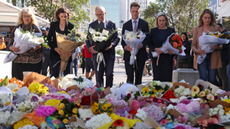 Sydney mall attacker may have targeted women
Sydney mall attacker may have targeted womenSpeed Read Police commissioner says gender of victims is 'area of interest' to investigators
By Julia O'Driscoll, The Week UK Published
-
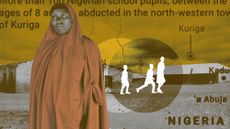 Why are kidnappings in Nigeria on the rise again?
Why are kidnappings in Nigeria on the rise again?Today's Big Question Hundreds of children and displaced people are missing as kidnap-for-ransom 'bandits' return
By Julia O'Driscoll, The Week UK Published
-
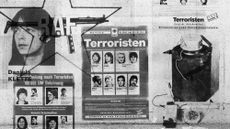 The Red Army Faction: German fugitive arrested after decades on run
The Red Army Faction: German fugitive arrested after decades on runWhy Everyone's Talking About Police reward and TV appeal leads to capture of Daniela Klette, now 65
By The Week UK Published
-
 Deaths of Jesse Baird and Luke Davies hang over Sydney's Mardi Gras
Deaths of Jesse Baird and Luke Davies hang over Sydney's Mardi GrasThe Explainer Police officer, the former partner of TV presenter victim, charged with two counts of murder after turning himself in
By Austin Chen, The Week UK Published
-
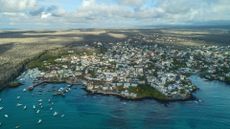 How the idyllic Galapagos Islands became staging post in world drug trade
How the idyllic Galapagos Islands became staging post in world drug tradeUnder the radar Ecuador's crackdown on gang violence forces drug traffickers into Pacific routes to meet cocaine demand
By Harriet Marsden, The Week UK Published
-
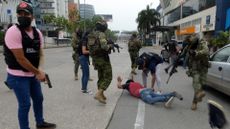 Armed gangs, prison breaks and on-air hostages: how Ecuador was plunged into crisis
Armed gangs, prison breaks and on-air hostages: how Ecuador was plunged into crisisThe Explainer Gangs launch deadly revenge after president declares state of emergency following escape of feared drug boss from prison
By Harriet Marsden, The Week UK Published
-
 Ecuador tips toward chaos amid prison breaks, armed TV takeover
Ecuador tips toward chaos amid prison breaks, armed TV takeoverSpeed Read New President Daniel Noboa authorized the military to 'neutralize' powerful drug-linked gangs after they unleashed violence and terror across Ecuador
By Peter Weber, The Week US Published